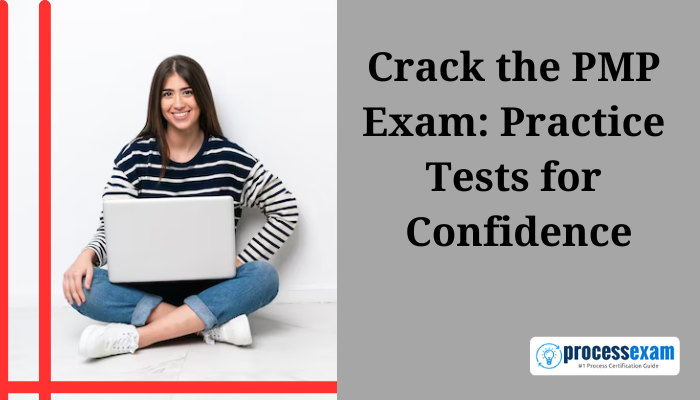
Are you gearing up to take the PMI Project Management Professional PMP certification exam? Congratulations on taking this significant step toward advancing your career in project management! To help you prepare effectively and efficiently, here are some effective study tips tailored specifically to aid you in passing the PMP certification exam.
What Is the PMP Certification All About?
The PMP certification recognizes individuals adept in overseeing personnel, procedures, and commercial objectives within professional projects. PMI, the foremost global authority on project management, established the PMP to honor project managers demonstrating tangible leadership skills and proficiency across various work methodologies.
To achieve PMP certification, a project manager must fulfill specific criteria and complete a 180-question exam. Crafted by experienced project leaders, the PMP exam ensures each question mirrors real-world project management scenarios.
Dive Deep into the Effective PMP Certification Study Tips:
Understand the PMP Exam Content Outline:
Familiarize yourself with the PMP exam content outline provided by the Project Management Institute (PMI). This outline serves as a roadmap, detailing the domains, tasks, and knowledge areas covered in the exam. Understanding this structure will guide your study plan and ensure you cover all necessary topics.
Utilize Official PMP Study Materials:
PMI offers official study materials such as the PMBOK Guide (Project Management Body of Knowledge) and the PMP exam content outline. These resources are essential for understanding the foundational concepts and frameworks required for the exam. Make sure to incorporate these materials into your study routine.
Experience the Actual Exam Structure with PMP Practice Test:
Practice makes perfect! Utilize sample questions and PMP practice exams to familiarize yourself with the format and style of questions you will encounter on the actual exam. This practice will help you gauge your readiness and identify areas where you may need to focus additional study efforts.
Study with A Group:
Consider joining a PMP study group or online forums dedicated to PMP exam preparation. Engaging with peers who are also studying for the exam can provide valuable insights, support, and motivation. Collaborating with others can also help reinforce your understanding of complex concepts through discussions and shared experiences.
Don’t Forget to Follow A Study Schedule:
Develop a PMP study schedule that fits your lifestyle and commitments. Dedicate specific time slots each day or week to study PMP exam materials consistently. Breaking down your study sessions into manageable chunks will prevent overwhelm and ensure steady progress leading up to the exam.
Focus on Weak Areas:
Identify your weak areas through practice exams and feedback from study group discussions. Allocate more time to study and practice questions in these areas to strengthen your understanding and confidence. Don't neglect any topic, as each domain carries significant weight in the exam.
Use Mnemonics and Memory Aids:
Complex concepts and terminology can be easier to remember with the help of mnemonics, acronyms, or memory aids. Create your own mnemonic devices or utilize ones shared by fellow PMP exam takers to recall key information more effectively during the exam.
Stay Updated with Exam Changes:
Stay informed about any updates or changes to the PMP exam content or format. PMI periodically updates its exam content outline to reflect changes in project management practices and methodologies. Ensure your study materials align with the most current exam requirements.
Simulate PMP Exam Conditions:
Prior to the exam, simulate exam conditions by taking full-length practice exams under timed conditions. This simulation will help you familiarize yourself with the exam environment and build your stamina for the four-hour duration of the actual exam. Additionally, it will highlight areas where you may need to improve time management.
Stay Calm and Confident throughout:
On the day of the PMP exam, stay calm and confident in your preparation. Trust in the knowledge and skills you've acquired during your study journey. Remember to read each question carefully, eliminate obviously incorrect choices, and utilize your critical thinking skills to select the best answer.
Why PMP Practice Tests Are Essential in Your Preparation Journey?
Using PMP practice tests as part of your preparation strategy offers several invaluable benefits. Here are three compelling reasons to incorporate them into your study routine:
Assessment of Knowledge with PMP Practice Test:
PMP practice tests serve as an effective tool to assess your understanding of key concepts, processes, and methodologies outlined in the PMBOK Guide and other study materials. By tackling practice questions, you can identify areas where you excel and areas that require further review. This self-assessment helps you gauge your readiness for the actual exam and pinpoint topics that may need additional focus.
Gain Familiarity with the PMP Exam Format:
Familiarity breeds confidence, especially when it comes to standardized exams like the PMP certification. Practice tests allow you to become acquainted with the format, structure, and style of questions commonly found in the PMP exam. By exposing yourself to practice questions that mimic the real exam, you will feel more comfortable and less intimidated when facing the actual test. This familiarity reduces test anxiety and improves your overall performance on exam day.
Improvement of Time Management Skills:
Time management is crucial for success in the PMP exam, which consists of multiple-choice questions to be completed within a given timeframe. Practice tests help you refine your time management skills by simulating exam conditions and constraints. By practicing under timed conditions, you will learn to allocate your time wisely, prioritize questions, and avoid getting stuck on challenging items. This practice ensures that you can pace yourself effectively during the actual exam, maximizing your chances of completing all questions within the allotted time.
Bottom Line:
By following these above study tips and maintaining a disciplined study routine, you will be well-equipped to pass the PMI Project Management Professional, PMP certification exam with flying colors. Best of luck on your journey to becoming a certified project management professional!
